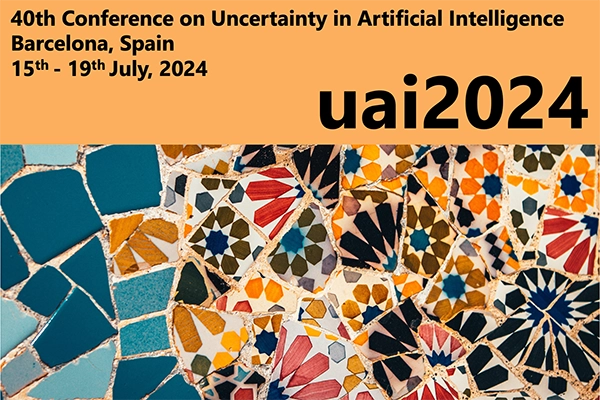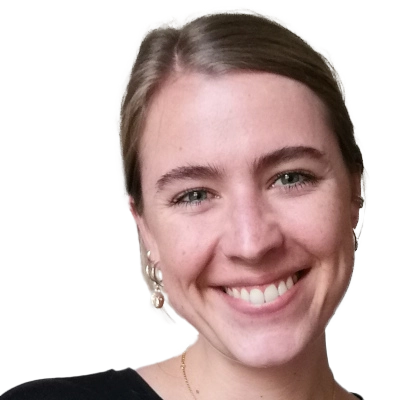10.07.2024

MCML Researchers With Three Papers at UAI 2024
40th Conference on Uncertainty in Artificial Intelligence (UAI 2024). Barcelona, Spain, 15.07.2024–19.07.2024
We are happy to announce that MCML researchers are represented with three papers at UAI 2024. Congrats to our researchers!
Main Track (3 papers)
Linear Opinion Pooling for Uncertainty Quantification on Graphs.
UAI 2024 - 40th Conference on Uncertainty in Artificial Intelligence. Barcelona, Spain, Jul 16-18, 2024. URL GitHub
Abstract
We address the problem of uncertainty quantification for graph-structured data, or, more specifically, the problem to quantify the predictive uncertainty in (semi-supervised) node classification. Key questions in this regard concern the distinction between two different types of uncertainty, aleatoric and epistemic, and how to support uncertainty quantification by leveraging the structural information provided by the graph topology. Challenging assumptions and postulates of state-of-the-art methods, we propose a novel approach that represents (epistemic) uncertainty in terms of mixtures of Dirichlet distributions and refers to the established principle of linear opinion pooling for propagating information between neighbored nodes in the graph. The effectiveness of this approach is demonstrated in a series of experiments on a variety of graph-structured datasets.
MCML Authors
How Inverse Conditional Flows Can Serve as a Substitute for Distributional Regression.
UAI 2024 - 40th Conference on Uncertainty in Artificial Intelligence. Barcelona, Spain, Jul 16-18, 2024. URL
Abstract
Neural network representations of simple models, such as linear regression, are being studied increasingly to better understand the underlying principles of deep learning algorithms. However, neural representations of distributional regression models, such as the Cox model, have received little attention so far. We close this gap by proposing a framework for distributional regression using inverse flow transformations (DRIFT), which includes neural representations of the aforementioned models. We empirically demonstrate that the neural representations of models in DRIFT can serve as a substitute for their classical statistical counterparts in several applications involving continuous, ordered, time-series, and survival outcomes. We confirm that models in DRIFT empirically match the performance of several statistical methods in terms of estimation of partial effects, prediction, and aleatoric uncertainty quantification. DRIFT covers both interpretable statistical models and flexible neural networks opening up new avenues in both statistical modeling and deep learning.
MCML Authors

Emilio Dorigatti
Dr.
* Former Member
Label-wise Aleatoric and Epistemic Uncertainty Quantification.
UAI 2024 - 40th Conference on Uncertainty in Artificial Intelligence. Barcelona, Spain, Jul 16-18, 2024. URL
Abstract
We present a novel approach to uncertainty quantification in classification tasks based on label-wise decomposition of uncertainty measures. This label-wise perspective allows uncertainty to be quantified at the individual class level, thereby improving cost-sensitive decision-making and helping understand the sources of uncertainty. Furthermore, it allows to define total, aleatoric, and epistemic uncertainty on the basis of non-categorical measures such as variance, going beyond common entropy-based measures. In particular, variance-based measures address some of the limitations associated with established methods that have recently been discussed in the literature. We show that our proposed measures adhere to a number of desirable properties. Through empirical evaluation on a variety of benchmark data sets – including applications in the medical domain where accurate uncertainty quantification is crucial – we establish the effectiveness of label-wise uncertainty quantification.
MCML Authors
Related

29.09.2025
Machine Learning for Climate Action - With Researcher Kerstin Forster
Kerstin Forster researches how AI can cut emissions, boost renewable energy, and drive corporate sustainability.

26.09.2025
Björn Ommer Featured in WELT
MCML PI Björn Ommer told WELT that AI can never be entirely neutral and that human judgment remains essential.

25.09.2025
Björn Schuller Featured in Macwelt Article
MCML PI Björn Schuller discusses in Macwelt how Apple Watch monitors health, detects subtle changes, and supports early intervention.

24.09.2025
MCML PI Björn Ommer Featured on ZDF NANO Talk
MCML PIs Björn Ommer & Alena Buyx discuss AI’s essence on ZDF NANO Talk, covering tech, ethics, and societal impact.









